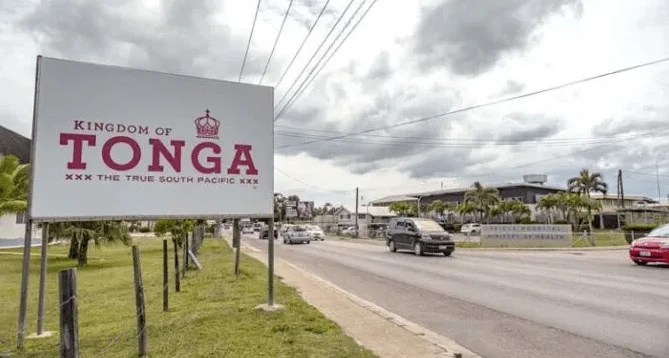According to Lord Fusitu’a, a former politician from Tonga, the Pacific island nation could be making moves to adopt Bitcoin by November, he also provided a step-by-step guide to adopting Bitcoin (BTC) as legal cash on Wednesday.

Lord Fusitu’a, a former Tonga member of parliament, provided an ETA for Bitcoin becoming legal cash in Tonga in a series of tweets. Following El Salvador’s lead, the action has the potential to bring over 100,000 Tongans onto the Bitcoin network.
The chairman of the Global Organization of Parliamentarians Against Corruption defines the adoption path in his five-point plan:
1. Sept/Oct Bill goes to Parliament. Passed.
2. Sent to Palace Office for submission to His Majesty for Royal Assent.
3.<A month – HM as advised by Privy Council assents to Bill.
4. 2-3 Weeks Gazetted by Govt activation date set.
4. On activation date #BTC becomes legal tender. https://t.co/TNjQjeEbjN
— Lord Fusitu’a (@LordFusitua) January 12, 2022
The bill is “modelled on and is practically identical to the El Salvador bill,” Fusitu’a stated in a follow-up comment.
Before the Tongan put the record straight, the revelation created the seeds for inquiries, predictions, and outright jubilation on Bitcoin Twitter. “Boom!” he exclaimed as he eagerly stated that BTC becoming legal tender may come as early as November or December this year. In a tweet, he said, “That’s us, brother!”
Tonga was widely expected to become one of the first countries to accept BTC as legal cash in 2021. Following Lord Fusitu’a’s podcast with Bedford-based Bitcoiner Peter McCormack, speculation reached a fever pitch.
The then-member of parliament shared the remittance case for adopting BTC as legal cash during the conversation. Adoption, he suggested, would cause:
“A disposable income increase by 30%. With that extra 30%, some (people) are going to be saving it rather than putting it into the economy and stacking sats.”
About Tonga
Tonga is a small island nation that relies on remittances from Australia, New Zealand, and the United States. According to the International Finance Corporation, Tonga receives more remittances than any other country in the world, accounting for up to 30% of household income.
Furthermore, the Tongan diaspora is extensive, despite the fact that the Tongan population is just six figures. According to the International Organization for Migration, there are 126,000 Tongans residing overseas, with up to 18,000 Tongans in Australia.
One of the key catalysts for El Salvador’s adoption of BTC as legal money was the remittance use case. Tonga’s remittances as a percentage of GDP are significantly larger than El Salvador’s, according to the World Bank, at 39 percent vs. 24 percent, respectively.
Aside from remittances, the Lord mentioned the domestic benefits of using the open-source protocol. He believed that Tonga might develop a BTC circular economy, calling it “one of the rare cases in where having a thinly populated little island monarchy archipelago is a benefit.”
When the internet infrastructure of the islands was questioned, Tongans claimed that internet and smartphone usage rates approached 90%. Tonga has a 50 percent internet penetration rate, according to the World Bank’s most recent estimates, which are from 2017. Although bringing the islands online will take time, Fusitu’a is confident in his country’s BTC future:

